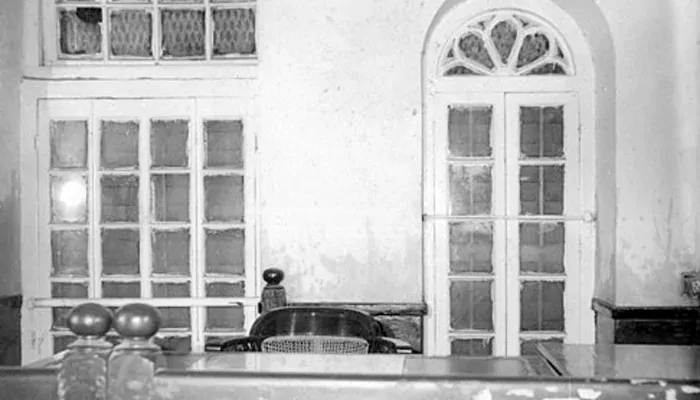
How Sri Aurobindo's trial reshaped the course of nationalist politics
On the night of April 30, 1908, two young men—Khudiram Bose and Prafulla Chaki—hurled a bomb at a carriage in Muzaffarpur. Their target was British judge Douglas Kingsford, infamous for his harsh sentences against nationalists. The bomb missed its mark and killed two British women instead.
What followed was more than a murder investigation. It became the gateway to uncovering a vast revolutionary network in Bengal. The failed assassination would shake the British Empire—and put Sri Aurobindo at the centre of India's most sensational political trial.

Soon after the Muzaffarpur incident, police traced the conspiracy to a garden house in Muraripukur, on the outskirts of Calcutta. A raid led to the discovery of bomb-making materials, revolutionary pamphlets, and a training ground for armed revolt.
At the heart of this operation was Barindra Kumar Ghose, Sri Aurobindo's younger brother. Both were members of the Anushilan Samiti, a secret nationalist society committed to ending British rule through armed insurrection.
Thirty-four revolutionaries were arrested. Among them was Sri Aurobindo, a well-known editor and nationalist thinker at the time. The charges? Waging war against the King—an offence punishable by death.

Sri Aurobindo was placed in solitary confinement in Alipore Central Jail for over a year. Confined to a small, windowless cell, he faced psychological and physical strain.
But instead of breaking, Aurobindo turned inward. He read the Bhagavad Gita, meditated, and slowly began to reshape his idea of India's freedom, not just as political independence, but also as a spiritual awakening.
His jail experience would later shape his philosophy and writings, forming the foundation of his future spiritual work in Pondicherry.
The British case heavily relied on the testimony of Narendranath Goswami, a fellow revolutionary who had turned approver for the government. But on September 5, 1908, he was shot dead inside Alipore Jail by two fellow under-trials—Kanailal Dutta and Satyendranath Bose.
Their act stunned the colonial establishment. It wasn't just vengeance—it was a declaration. The murder silenced the prosecution's star witness and exposed cracks in British control, even inside prison walls.

The Alipore Bomb Case trial commenced in May 1908 and lasted for a whole year, making it one of the longest political trials in British India. The prosecution produced over 200 witnesses and thousands of documents.
Defending Aurobindo was Chittaranjan Das, one of the most brilliant lawyers of the era. He argued that while Aurobindo was a political philosopher, there was no evidence linking him to the conspiracy. Das portrayed him as a man of vision, not violence—someone who shaped minds, not bombs.
The courtroom was packed daily. Outside, the trial stirred public opinion, igniting sympathy for the accused and anger against colonial repression.
On May 6, 1909, the verdict was delivered. Sri Aurobindo was acquitted, as the court found no direct evidence of his involvement in the bomb plot.
Others were not as fortunate. Barindra Ghose and Ullaskar Dutt were sentenced to death, later commuted to life imprisonment. Fifteen others were given varying terms of penal transportation. The British government had struck hard, but failed to silence the growing demand for freedom.
For Aurobindo, the trial was a turning point. He withdrew from active politics and moved to Pondicherry, where he began his journey as a spiritual philosopher and yogi.
The Alipore Bomb Case changed the face of India's freedom movement.
But its most profound impact was the transformation of Sri Aurobindo. In his famous Uttarpara Speech, given shortly after his release, he declared that India's destiny was not just political liberty but also spiritual fulfilment.